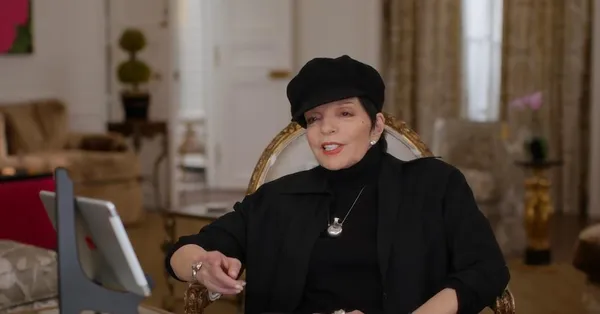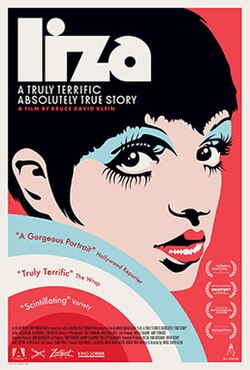Eye For Film >> Movies >> Liza: A Truly Terrific Absolutely True Story (2024) Film Review
Liza: A Truly Terrific Absolutely True Story
Reviewed by: Jennie Kermode

“What I was really good at,” says Liza Minelli early on in this documentary, “was picking the people to be around.”
If you’re born to stardom as she was, that’s an important talent. Bruce David Klein’s documentary opens its narrative with the death of her mother, Judy Garland, when Liza was just 23. The oldest of three children, she found herself with a great many immediate responsibilities, and also had to contend with a weight of expectation present since her birth but suddenly heavier. Who was she going to be? Under pressure to fill her mother’s shoes, she had to fight to carve out a public identity of her own. This film focuses on the key figures who helped her to do that.
It’s a glamorous story, of course, and that will no doubt help to draw in viewers. There is talk of her father, Vincente Minelli, the director of films like Gigi and Meet Me In St Louis, who seems to have been close to her in childhood and would take her along with him to film sets, giving her the chance to learn his craft. We see echoes of that later as she confidently gives instructions as to the angle from which she wishes to be shot, and her consciousness of how the camera works is visible in many contexts. There is little reference to their relationship as adults, however – despite the fact that she went on to star in one of his films – as he disappears from the picture in favour of an assortment of mentors.
These include her ‘quirky godmother’ Kay Thompson, who is described in terms which are flattering but a little demeaning, with that Hollywood notion that there’s only one way to be beautiful and that anyone who lacks that kind of beauty must be jealous. Thompson is described as teaching her how to live – boosting her confidence, taking her to parties, making important introductions – whilst it was Charles Aznavour (himself mentored as a youth by the great Edith Piaf) who taught her how to sing, how to express emotion and character rather than focusing on some bland notion of perfection.
There’s Cabaret director Bob Fosse, of course, who did something similar with her dancing, helping her to work around her scoliosis and create something unique. Roy Halston did something similar with the way she dressed, and is credited with the sequins which would become a signature part of her image. Fred Ebb, meanwhile, wrote her signature hit Liza With A Z, helping her to establish her name, though even years later people were still calling her ‘Lisa’, as you’ll notice if you pay attention to the archive footage used to substantiate all this.
The danger of this approach to telling Liza’s story is that it’s easy for her own presence to get lost in the mêlée. If you don’t have a clear sense of who she is when you go in, you may come out feeling none the wiser. This isn’t helped by a tendency to infantalise her throughout. Perhaps it’s because she was in the public eye from childhood; perhaps it’s her short stature; but the constant references to her as a ‘girl’ or a ‘little girl’ become wearing as she passes into her thirties, forties, fifties. Surviving mentors and peers alike talk about her as if she could never really be trusted to make independent decisions well, with a focus on the importance of protecting and conforting her. Though she is plainly capable of expressing herself forcefully, she is given little opportunity to do so.
Of course, Liza is 79 now and not in the best of health, which makes it more difficult for her to assert herself within this framework. The interview with her is sensitively handled but it would be nice to hear a bit more of what she has to say. We are told that she doesn’t like to talk much about her personal life. The film addresses her marriages anyway, and name drops a few of her lovers, though at such speed that it’s hard to keep up. It also covers her struggles with addiction. There’s surprisingly little talk about her AIDS activism and her status as a gay icon – the one thing where she really does resemble her mother – but perhaps, in light of the other interviewees featured here, that seemed unnecessary.
Devoted fans will of course delight in any new coverage of Liza, and will enjoy the archive footage and photographs presented here. Overall, however, it’s rather a shallow piece of work, and doesn’t contribute much to her legacy.
Reviewed on: 16 Jun 2025


















